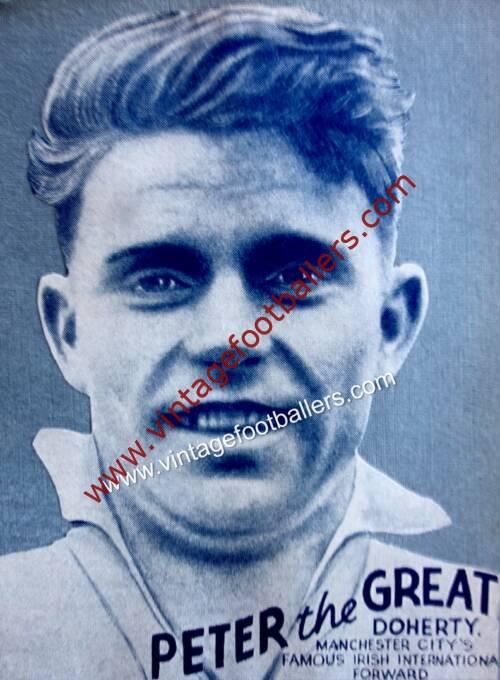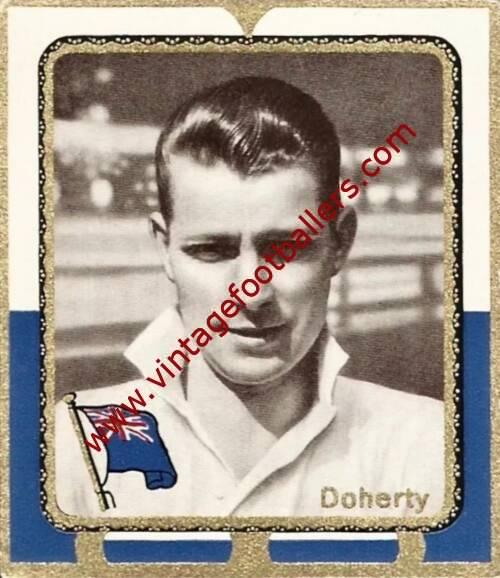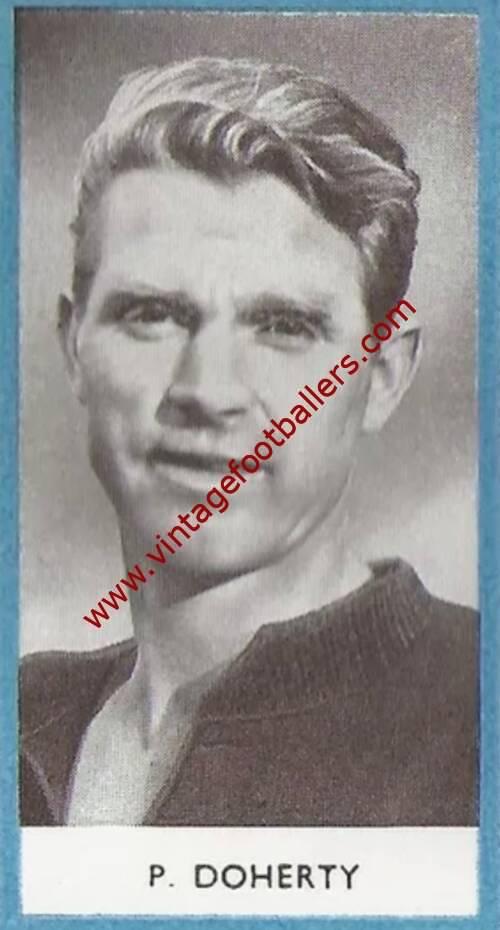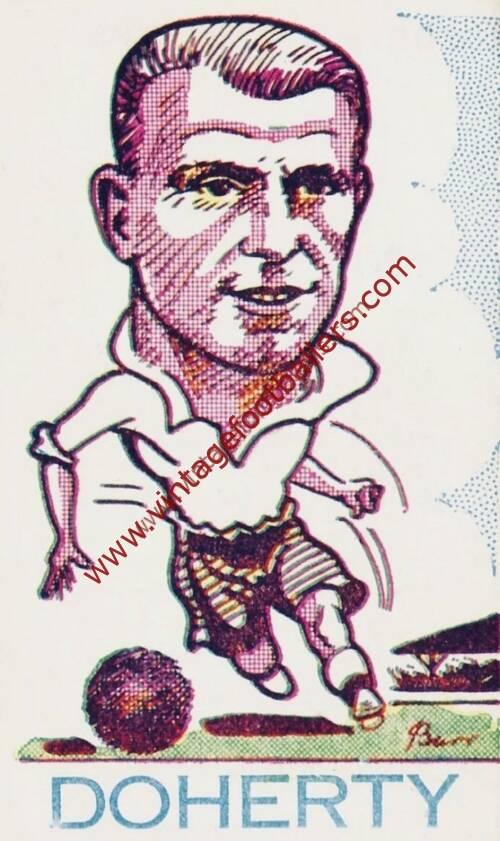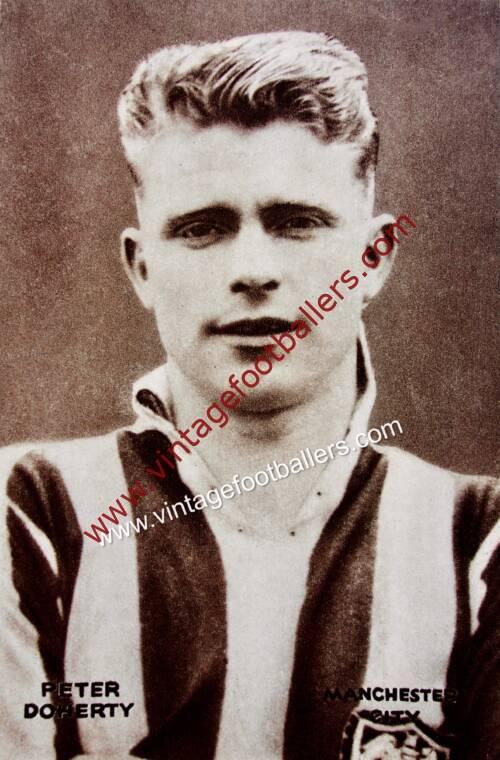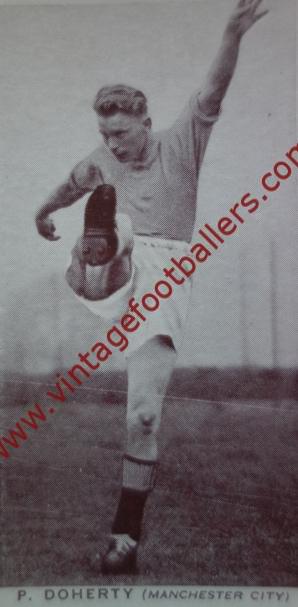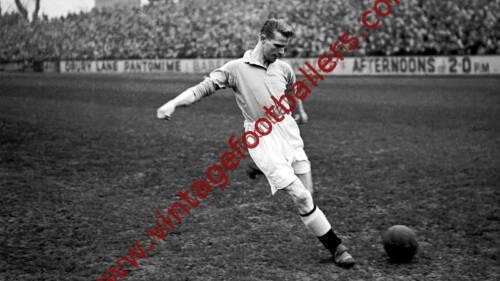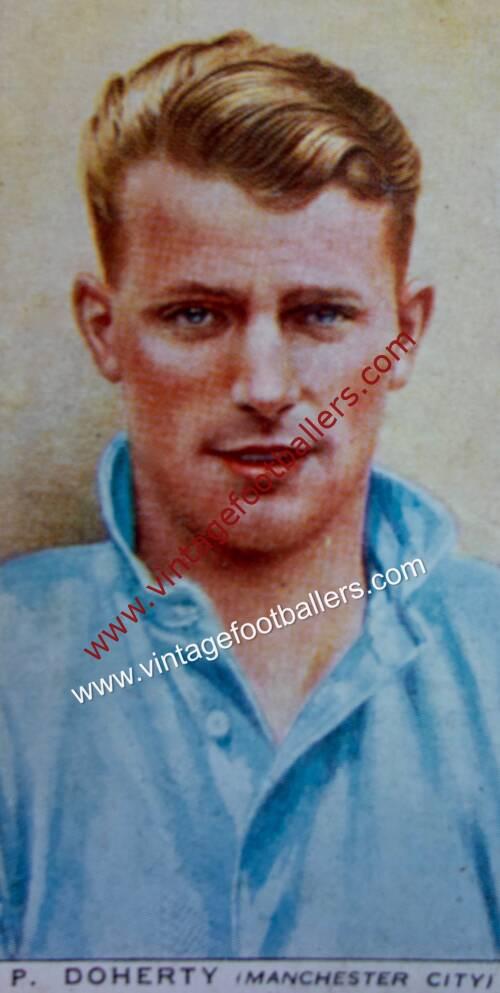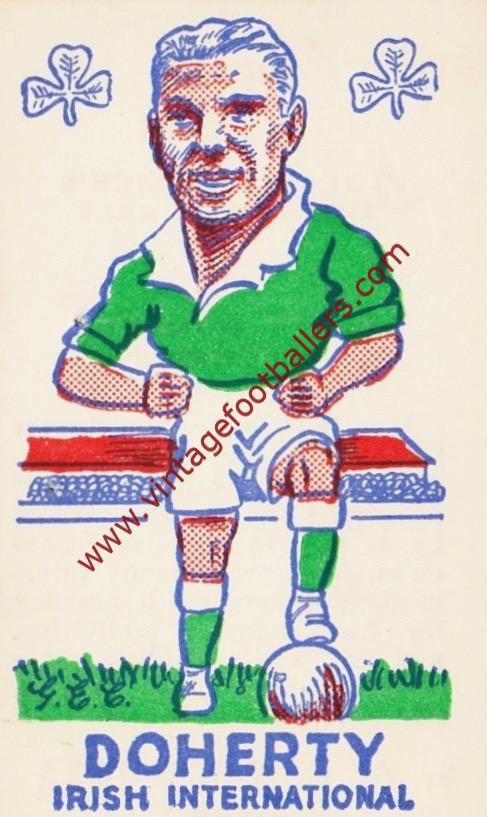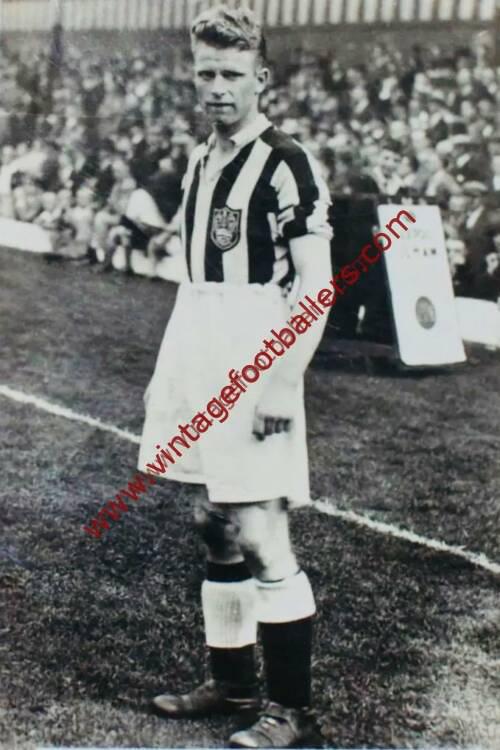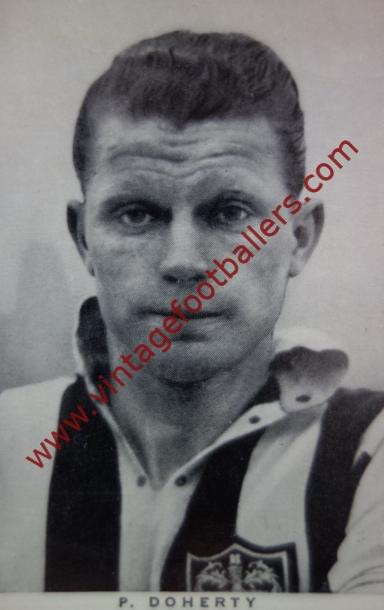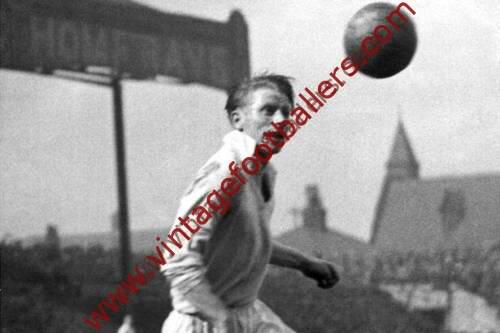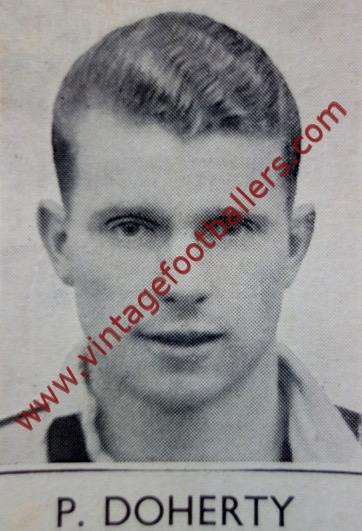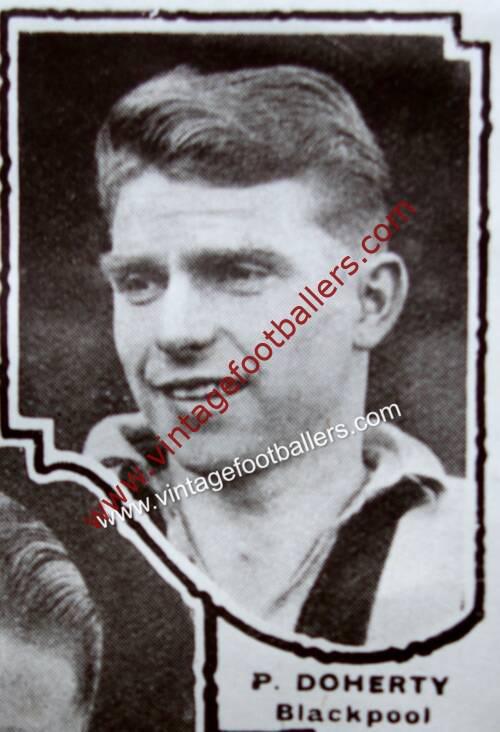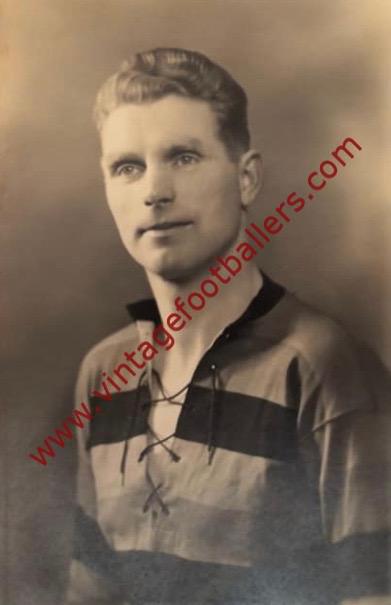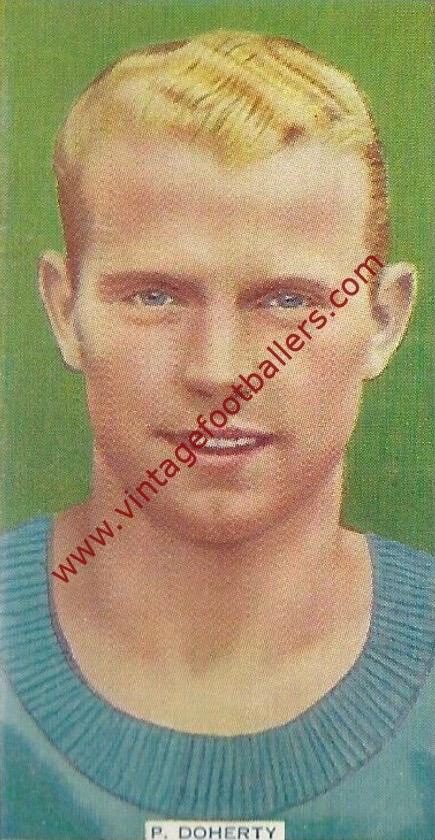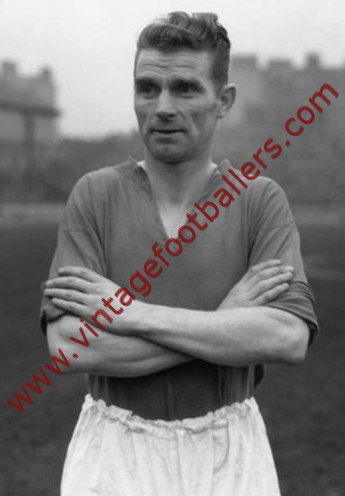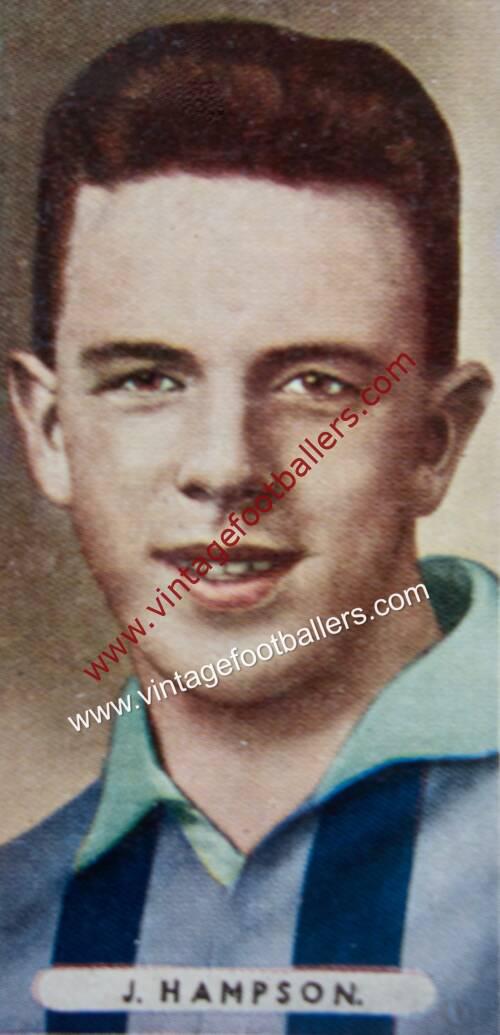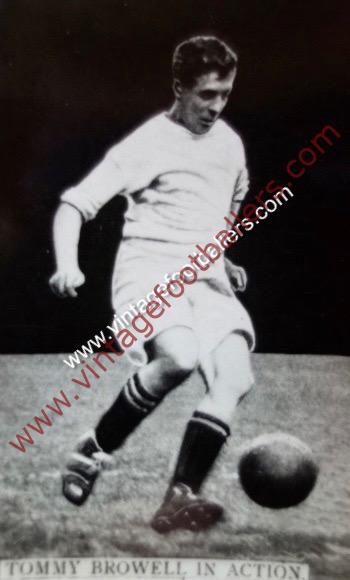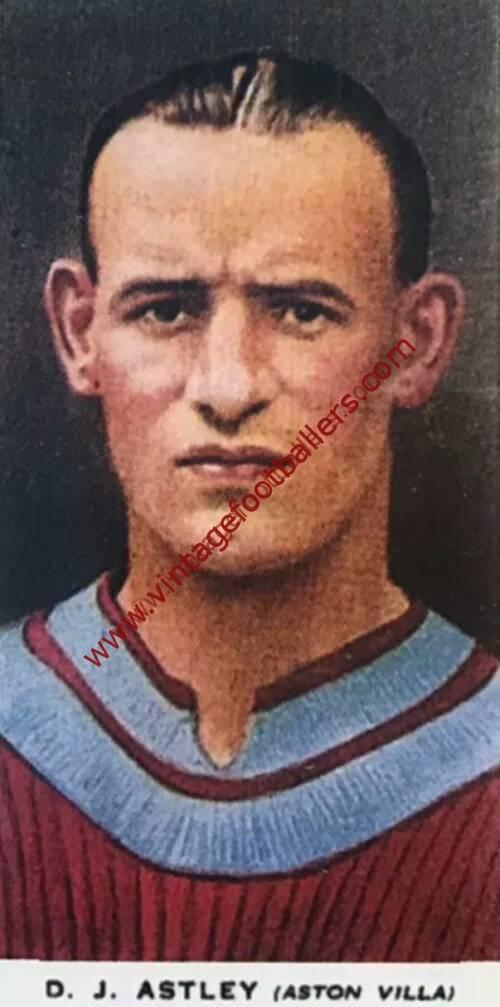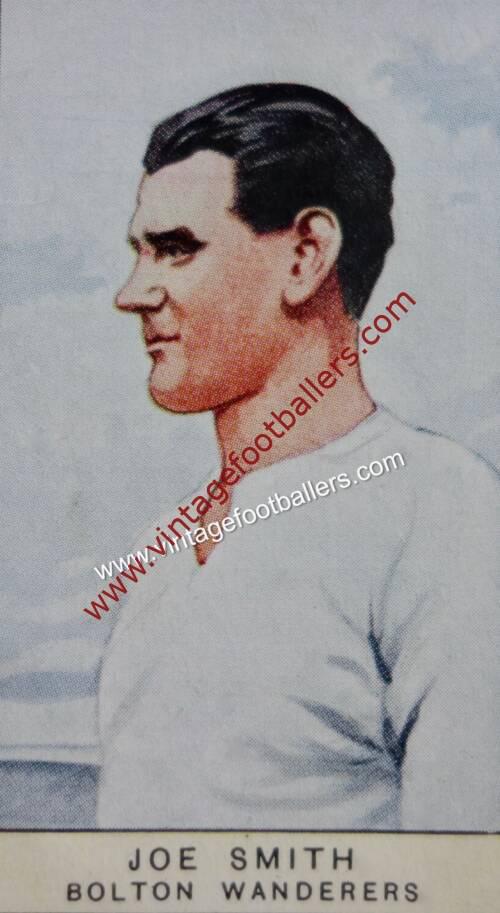Please choose your photo size from the drop down menu below.
If you wish your photo to be framed please select Yes.
Note: 16″x 20″not available in a frame.
Images can also be added to accessories. To order please follow these links
£8.95 – £49.95
Please choose your photo size from the drop down menu below.
If you wish your photo to be framed please select Yes.
Note: 16″x 20″not available in a frame.
Images can also be added to accessories. To order please follow these links
Magherafelt, County Londonderry born inside left Peter “The Great” Doherty was a considerable star of the 1930’s, 40’s and 50’s who scored over 200 goals in his career. He started his career playing junior football with Station United and at Coleraine, and joined Glentoran in 1930, where he scored 35 goals in 61 appearances for The Glens, winning the Irish Cup with them in 1933.
Still aged only 19, he then signed for Blackpool for £2,000 in November 1933 making his Football League debut at Bradford Park Avenue in December. He won the first of his 16 caps for Ireland in February 1935, playing in a 2-1 defeat to England at Goodison Park, his last cap coming against Scotland in November 1950, and he scored 3 goals for his country.
Manchester City paid a club record £10,000 for him in February 1936 after 29 goals in 87 games for The Seasiders, and he played in all but one of their games, top scoring with 30 goals, as City won the 1937 League Championship with a Doherty inspired strong second half to the season. This included scoring in 10 of the last 12 games, including a hat-trick against Preston North End, during which City recorded 9 wins and 3 draws. Doherty scored the first goal in a 2–0 win over League leaders Arsenal, with this win City reached the top of the table.
However despite a further 23 goals the following season, with hat-tricks against Leicester City and Leeds United, they were relegated. He remained a City player during the Second World War, during which he served with the RAF, scoring 60 goals in 89 wartime matches for City, but he also guested for a plethora of clubs including Port Vale, Blackburn Rovers. Derby County, Birmingham City, Brentford, Liverpool, Manchester United, Grimsby Town, Lincoln City, Walsall and West Bromwich Albion. It was during a guest appearance for Port Vale in 1945 that he famously went to take a penalty but instead of shooting he laid it off to a team mate who scored.
At the end of the War he transferred to Derby County for another £10,000 fee. He had played 134 times for City scoring 88 goals (and scored another 60 in Wartime games). He also played for Ireland in two victory internationals in 1945 and 1946. He also scored on his only appearance for The Football League.
He won the FA Cup with Derby in 1946, scoring the winning goal in their Cup Final win over Charlton Athletic at Wembley. In December 1946 he signed for Huddersfield Town for a fee of over £9,000 having requested a transfer, after 17 goals in 25 games for The Rams, 10 of which were in the 1946 Cup run. At Leeds Road he managed 37 goals in 87 games before becoming player manager of Doncaster Rovers in June 1949.
His coaching techniques were revolutionary at the time. He emphasised ball practice and instead of endless laps of the pitch, Doherty suggested volley-ball, “to promote jumping, timing and judgement”; basket-ball, “to encourage split-second decision-making and finding space”; and walking football, “to build up calf muscles”.
In his first season he scored 30 goals in the campaign as Rovers won the Third Division (North) Championship and he continued to play a further three seasons in Division Two, before hanging up his boots aged nearly 40 after 57 goals in 106 games for Rovers. He continued as manager until January 1958, and also managed Northern Ireland from 1951 to 1962. He managed Bristol City from January 1958 to March 1960, and was also briefly manager of Notts County from December 1965 to March 1966. He later scouted for Liverpool.
Following his death in 1990, a plaque was placed to mark his birthplace in Magherafelt. He was inducted into the English Football Hall of Fame in 2002.
Bill Shankly wrote of Doherty:
“Di Stefano, Puskas, Gento, Kopa, Pele, Eusebio, Bobby Charlton, Finney and Matthews.
It was an honour to play with and against the last two. But top of them all I would place Peter Doherty of Manchester City. He always gave me the greatest trouble. He was perpetual motion. You could dog, challenge and even hurt him. But you couldn’t dismay him. He kept coming.”
In his autobiography, Len Shackleton wrote of Doherty:
| Weight | N/A |
|---|
